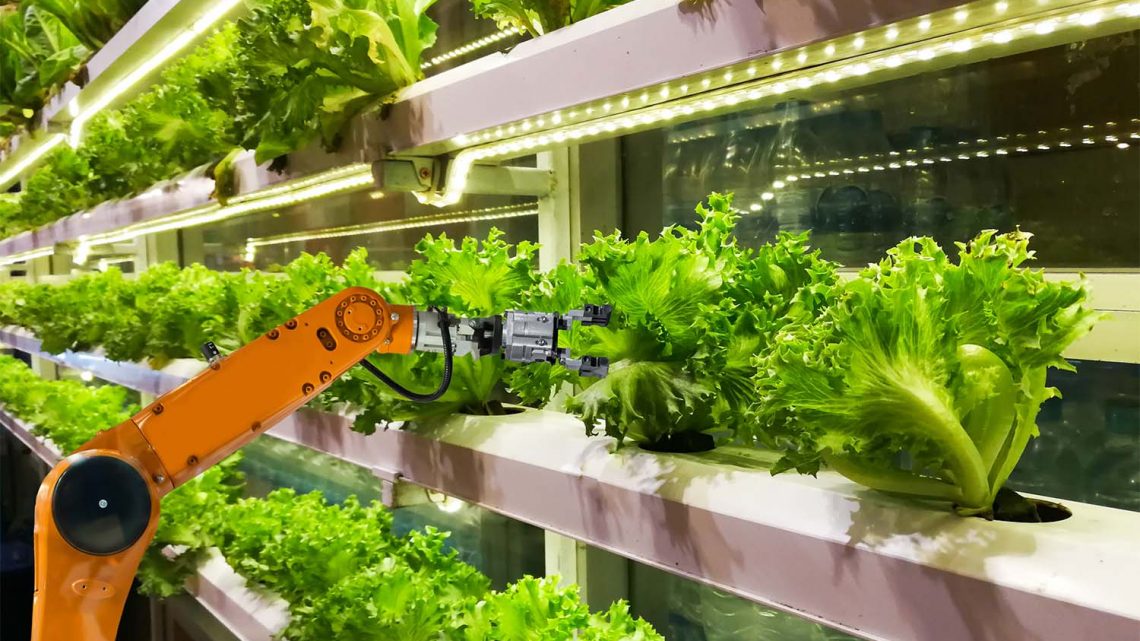New Precision Ag Facility Adds to UF/IFAS Arsenal to Fight Pests, Diseases
By: Brad Buck, 813-757-2224, [email protected]
BALM, Fla. — In a new, 8,500-square-foot building at the UF/IFAS Gulf Coast Research and Education Center, weed scientist Nathan Boyd uses images of weeds to train computers to identify them. Those pictures can be used to help growers know when, where and how to control pests.
Using this form of precision agriculture, data from UF/IFAS researchers such as Boyd and Arnold Schumann have helped farmers reduce pesticide use by up to 90 percent, helping preserve the environment.
“In the future, pests are likely to be largely controlled using precision technology, and successful farming operations will need to learn to adapt,” said Boyd, an associate professor of horticultural sciences at the GCREC in Balm, near Tampa.
The facility, which opened in October at GCREC in Balm, is dedicated to the precision agriculture research of three scientists at the center.
Plant breeder Sam Hutton studies ways to develop mechanically harvestable tomatoes, and Andrew Koeser researches methods to increase the benefits of trees in urban environments.
These scientists and others across UF/IFAS use artificial intelligence to design ways to use robotic-like machinery that will help farmers in Florida and nationwide cope with bugs and diseases.
UF/IFAS researchers toil in labs and farms statewide – sometimes in collaborative efforts — because growers increasingly rely on innovative technologies to produce the highest yields possible.
For instance, Boyd works with a UF/IFAS scientist a little more than an hour away from his lab and fields at the GCREC. Schumann, a professor of soil and water sciences at the UF/IFAS Citrus Research and Education Center in Lake Alfred, develops technology to find and vanquish the Asian citrus psyllid – at least within the confines of a screened-in environment.
The psyllid is the tiny bug that can infect citrus trees with the citrus greening disease. Schumann’s psyllid detection method only applies in clean, enclosed, protected environments such as Citrus Under Protective Screens, or CUPS. That’s because most, if not all, outdoor citrus groves in Florida are affected by citrus greening and are already teeming with psyllids, Schumann said.
Boyd and Schumann have been awarded a grant from the Florida Department of Agriculture and Consumer Services. Through the grant, the scientists are studying how to improve their precision sprayers, develop new models for weed and pest detection and integrate the models into new smart sprayers.
“Our labs have worked together to train computer models to recognize pests,” Boyd said of his work with Schumann. “Arnold develops the controllers and electrical components programs. In my lab, we test the technology in the field.”
Starting in January, Yiannis Ampatzidis, an agricultural engineer at the UF/IFAS Southwest Florida Research and Education Center in Immokalee, will join Boyd on another state grant. They’ll study how to develop a precision sprayer for vegetables, using machine vision and artificial intelligence.
“This precision sprayer can reduce production costs, risk of crop damage and excess agrochemical residue, as well as potentially reduce environmental impact,” Ampatzidis said.
[livemarket market_name="KONK Life LiveMarket" limit=3 category=“” show_signup=0 show_more=0]


No Comment